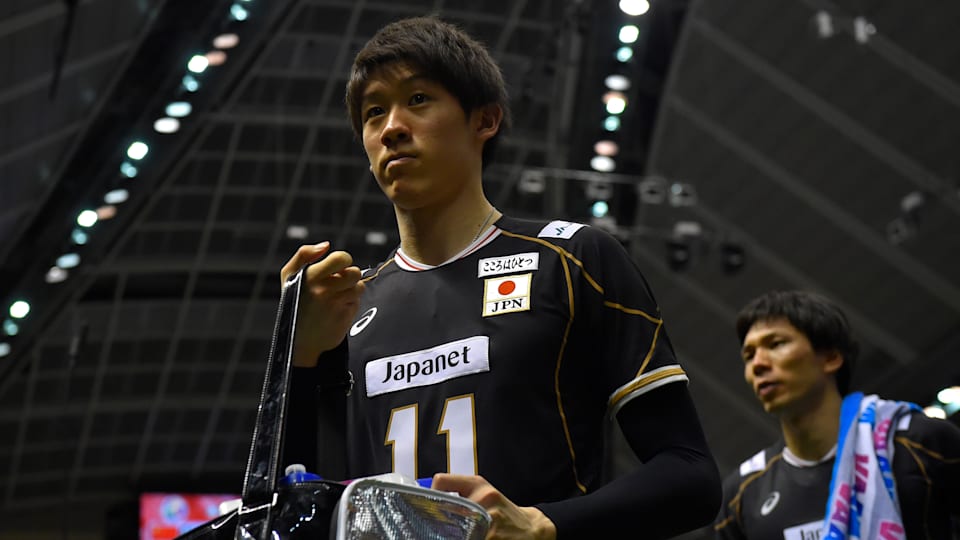Ishikawa Yuki: How the Japanese star found his game in Italy
Far away from the Tokyo 2020 craze at home in Japan, the volleyball ace is honing his craft in Serie A

After graduating from Chuo University in 2018 as one of the most sought-after volleyball players in the country, Ishikawa Yuki easily could have opted for the security and comfort that goes with playing in the Japanese corporate league.
But instead, Ishikawa chose to throw himself in the deep end, signing with Siena in the Italian Serie A.
“I want to compete with the best in the world”, Ishikawa said, according to Gazzetta dello Sport. “I have a lot of work to do to prepare for the Tokyo Olympics and playing abroad is part of my preparation”.
“The Italian league helped me develop as a player”.
Turning point
The move has certainly paid off for both Ishikawa and the Japan national team. After his season at Siena, Ishikawa is said to have received offers from more than half the clubs in Serie A.
He picked Padova, where the 24-year-old has started every game for them this season, being named man-of-the-match three times.
Counting his short-term stints with Modena (2014-15) and Latina (2016-18) while he was still in university, Ishikawa has eclipsed the 100-appearance mark in the Italian top flight for his career.
The Aichi Prefecture native has won over his teammates with diligence at Padova, where some of his following make the trip all the way from Japan to Kioene Arena.
“Yuki is a fantastic guy, very polite and willing to help”, middle blocker Alberto Polo says of Ishikawa.
“You can’t be upset with him because he always gives his best and you can always count on him. He’s very meticulous, even before and after training. He’s also super tidy’”, said Polo.
Smash hit for Japan
For his country, Ishikawa has become the undisputed pillar of the team. Last autumn, he led Japan to a respectable fourth place at the FIVB World Cup held on home soil.
It was Japan’s best result in 28 years at the World Cup, where Ishikawa – the MVP of the 2017 Asian Championships – was named second best outside spiker of the tournament.
Ishikawa’s evolution is hardly surprising given that volleyball is encoded in his DNA.
His younger sister Mayu also plays for the national side, and the Ishikawa family could very well have two of them playing under the bright lights of the Tokyo 2020 Olympic Games.
“Volleyball is a family passion, it comes natural”, said Yuki. “I started to play when I was 10 and it was love at first sight with this sport”.
The prodigy
Ishikawa was turning heads from an early age. He rose to national fame in high school when he led Seijo to the unprecedented feat of capturing the triple crown of major titles in two successive years.
The 1.92-meter leaper went on to become the youngest ever to make his senior international debut at the 2014 Asian Games. Yet Ishikawa has not gotten to where he has on his rich bloodlines alone.
He is very much a student of the game, his former coach at Chuo University Rio Matsunaga told Gazzetta dello Sport.
“His main strength is the ability to adapt,” Matsunaga said. “If his team is focused on attacking, he will work on his service and offensive style.
“If his team is focused on defending, he will try to improve his reception”.
Says Ishikawa, “I watch a lot of volleyball on TV. I want to learn from the best players so I can repeat their moves”.
Eyes on the prize
Japan will need Ishikawa to be at his ultimate best if they are to end a medal drought that has spanned five decades at Tokyo 2020.
The Japanese men have not reached the Olympic podium since Munich 1972, when they beat East Germany to win gold.
Ishikawa is fully aware of the daunting challenge that lies ahead but is more than looking forward to throwing a surprise party this summer at the sparking new Ariake Arena.
“The fact of playing home and representing my national team during such an important event for my country. I can’t wait for it”, - Japanese spiker Yuki Ishikawa.
“Japanese people have been waiting for this event with an unprecedented enthusiasm. The expectations are very high and the organisational skills of Japanese people could be the key for success”.
